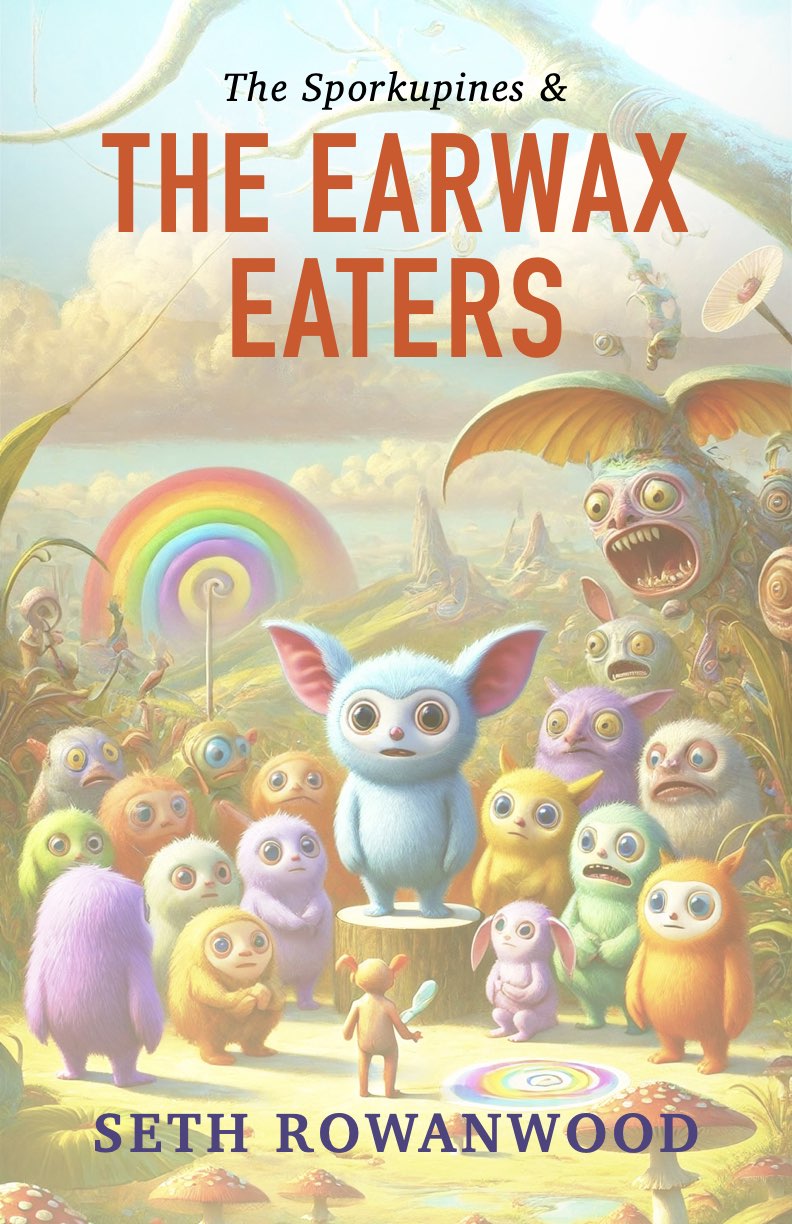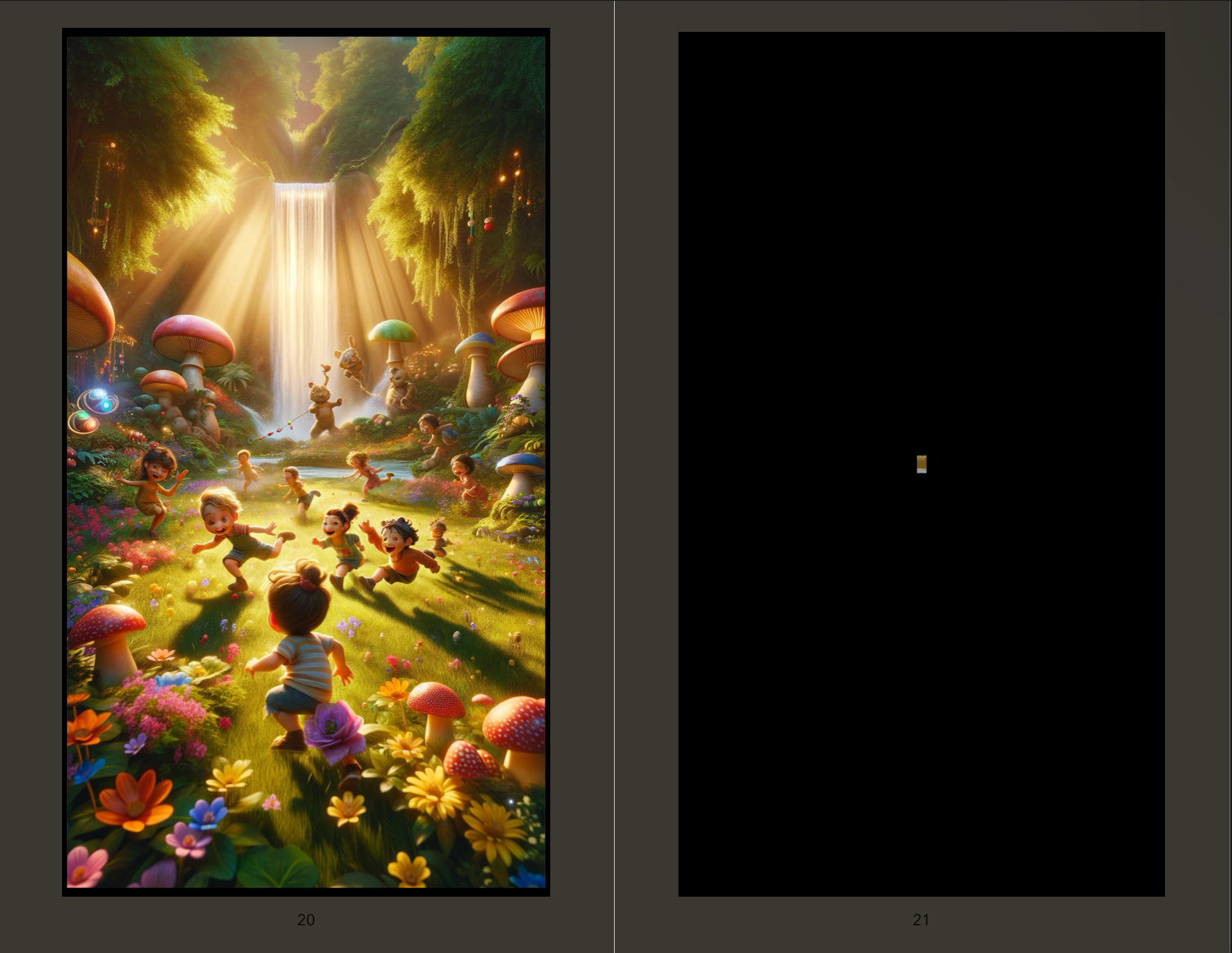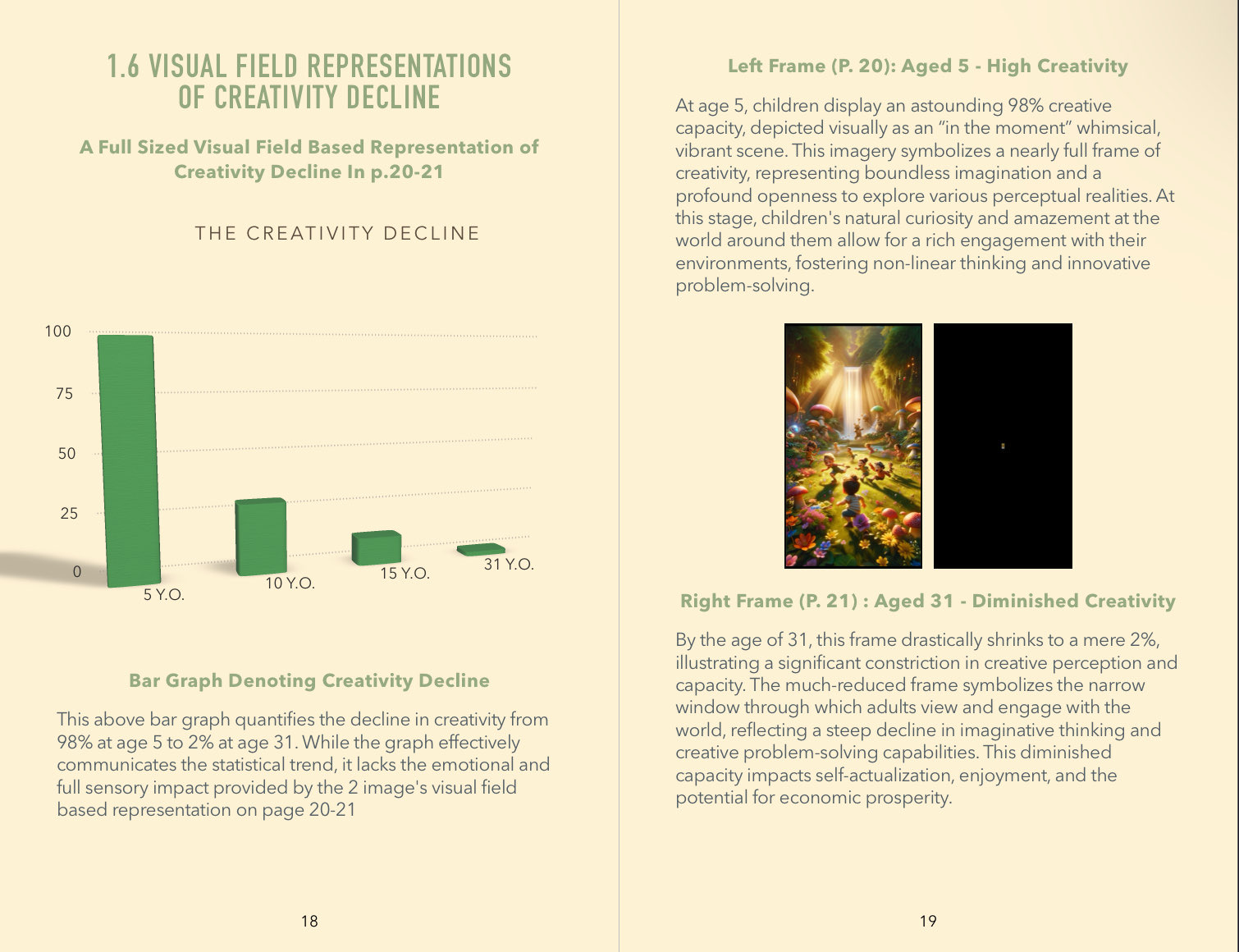The Earwax Eaters

Dive into the whimsical world of the Sporkupines, a community plagued by confusion and miscommunication, as they discover the power of quiet reflection, heartfelt communication, and ethical leadership. Guided by the courageous Squee, the Sporkupines learn to break free from the divisive tactics of the mischievous Earwax Eaters, fostering unity and clarity in their vibrant, natural village.
This challenging and enchanting tale is more than a children’s story—it’s a compelling parable for all ages, blending playful storytelling with profound lessons on empathy, resilience, and collaborative growth. Perfect for leaders, educators, and dreamers, this book invites you to embrace inner wisdom and build a compassionate, harmonious world.
Ideal for tough crowds, teams with expansion issues, and individuals with a need for adventure, this book challenges and inspires readers to listen with their hearts, lead with integrity, and connect deeply with those around them. Join the Sporkupines on their daring journey and be inspired to create lasting change in your community.
To read the e-book, click on image.
The-Earwax-EatersUnlocking Cognitive Potential:
The Role of Creativity, Flow, and Enjoyment
In today’s fast-paced world, maintaining cognitive performance and well-being is crucial. Research shows that fostering creativity, flow states, and ensuring enjoyment can significantly enhance cognitive capacities and lead to empowerment.
🔍Case Study Highlights:
1. Individual Level:
- Worst-Case: Chronic stress in high-pressure jobs leads to cognitive decline and poor health. [McEwen, 2007]
- Best-Case: Balancing work with creative hobbies and mindfulness practices enhances cognitive flexibility and resilience. [Dietrich, 2004; Davidson et al., 2003]
2. Organizational Level:
- Worst-Case: High-stress environments result in high turnover and decreased innovation. [PLOS ONE, 2018]
- Best-Case: Supportive workplaces that encourage creativity and work-life balance drive innovation and satisfaction. [ESCAPE Project, 2020]
3. Societal Level:
- Worst-Case: Education systems focusing solely on rote learning contribute to mental health crises and economic stagnation. [BMC Psychiatry, 2020]
- Best-Case: Holistic education systems that promote creativity and emotional intelligence foster resilience and economic growth. [Cambridge Cognition, 2017]
🧠Visualizing Creativity Decline: The attached images visually highlight a drop in creativity from 98% at age 5 to just 2% by age 31, ( dipiction of % of visibility of the same image) reflecting a decline in imaginative thinking and non linear and complex problem-solving capabilities.
🔗The Cost of “Zombie Mode”: Living in “zombie mode,” characterized by routine and lack of creative engagement, has profound costs:
- Economic Impact: A lack of creativity stifles innovation, crucial for economic growth. [Runco, 2004]
- Health Consequences: Chronic stress and lack of creative engagement are linked to mental health issues like anxiety and depression. [McEwen, 2007]
- Societal Costs: Societies not prioritizing creative education and work environments may face stagnation and lack of progress. [BMC Psychiatry, 2020]
🌟Takeaway: By integrating creative activities, promoting flow states, and ensuring enjoyment, we can unlock greater cognitive potential. As Einstein said, “If you want your children to be intelligent, read them fairy tales. If you want them to be more intelligent, read them more fairy tales.” This holistic approach is key to thriving in personal and professional domains.
Let’s create environments that nurture minds and empower communities!
Get the source citations HERE:
Sources:
– McEwen, B.S. (2007). Physiology and neurobiology of stress and adaptation. Physiological Reviews.
– Dietrich, A. (2004). The cognitive neuroscience of creativity. Psychonomic Bulletin & Review.
– Davidson, R. J., et al. (2003). Alterations in brain and immune function produced by mindfulness meditation. Psychosomatic Medicine.
– PLOS ONE. (2018). The magnitude and effect of work-life imbalance on cognition and affective range.
– Cambridge Cognition. (2017). Can stress at work affect cognitive performance?
– BMC Psychiatry. (2020). The Effects of Stress on Cognitive Aging, Physiology, and Emotion (ESCAPE) Project.
– Runco, M. A. (2004). Creativity. Annual Review of Psychology, 55, 657-687.


